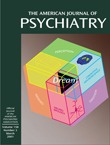Diagnosing Asperger’s Disorder
To the Editor: The clinical case conference by Fred R. Volkmar, M.D., et al. (1) was touching in its description of a young man’s deficits, as was his autobiographical statement: “I am an intelligent, unsociable, but adaptable person.” The section titled “Validity of the Diagnostic Concept” was informative. However, assigning a diagnosis to this youngster, along with informing him and his family of the lesion in his brain (demonstrated by magnetic resonance imaging [MRI]), raises a question about the possible long-term harm done to him. Certainly one has to wonder whether he has been done a favor. Is he, in fact, better off knowing that he has an assigned diagnosis of Asperger’s disorder? Or would he be better off believing that he is a somewhat unusual youngster who has apparently made a rather good adaptation to his “nature.” It seems to me that one could still provide him with adequate information (otherwise discussed in the section “Implications for Treatment”) to help him make an even better adaptation should he wish, using the same teaching of verbal problem-solving techniques and help with vocational planning that was described. I believe that it would be far easier for this youngster to accept such “information” rather than finding himself in “treatment” for his “disorder.”
1. Volkmar FR, Klin A, Schultz RT, Rubin E, Bronen R: Asperger’s disorder. Am J Psychiatry 2000; 157:262–267Link, Google Scholar



